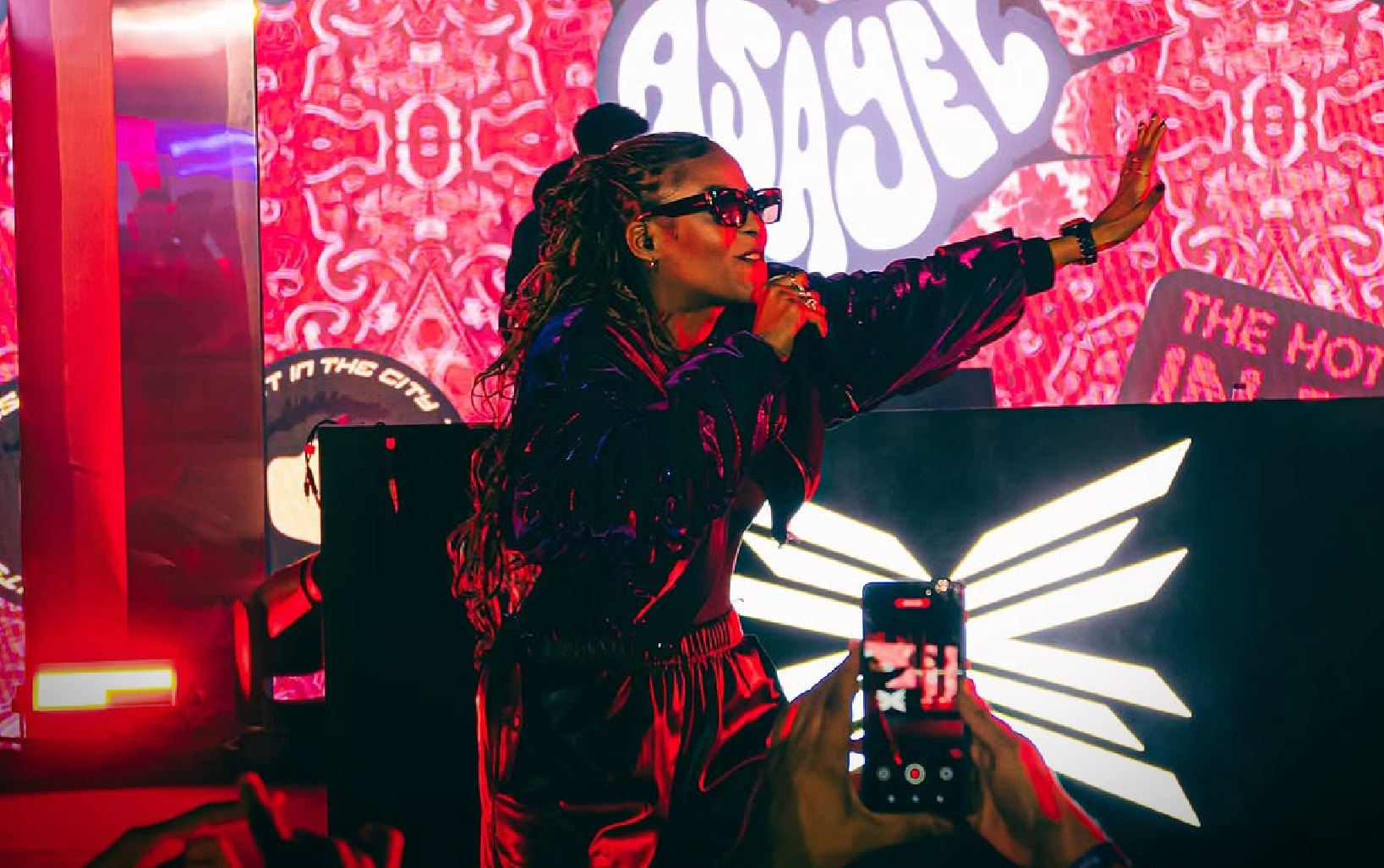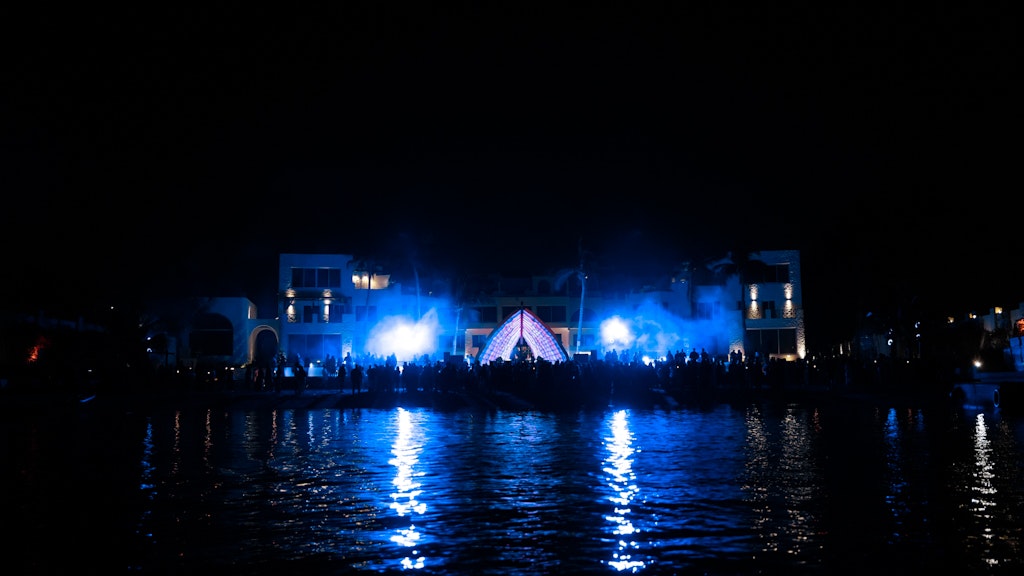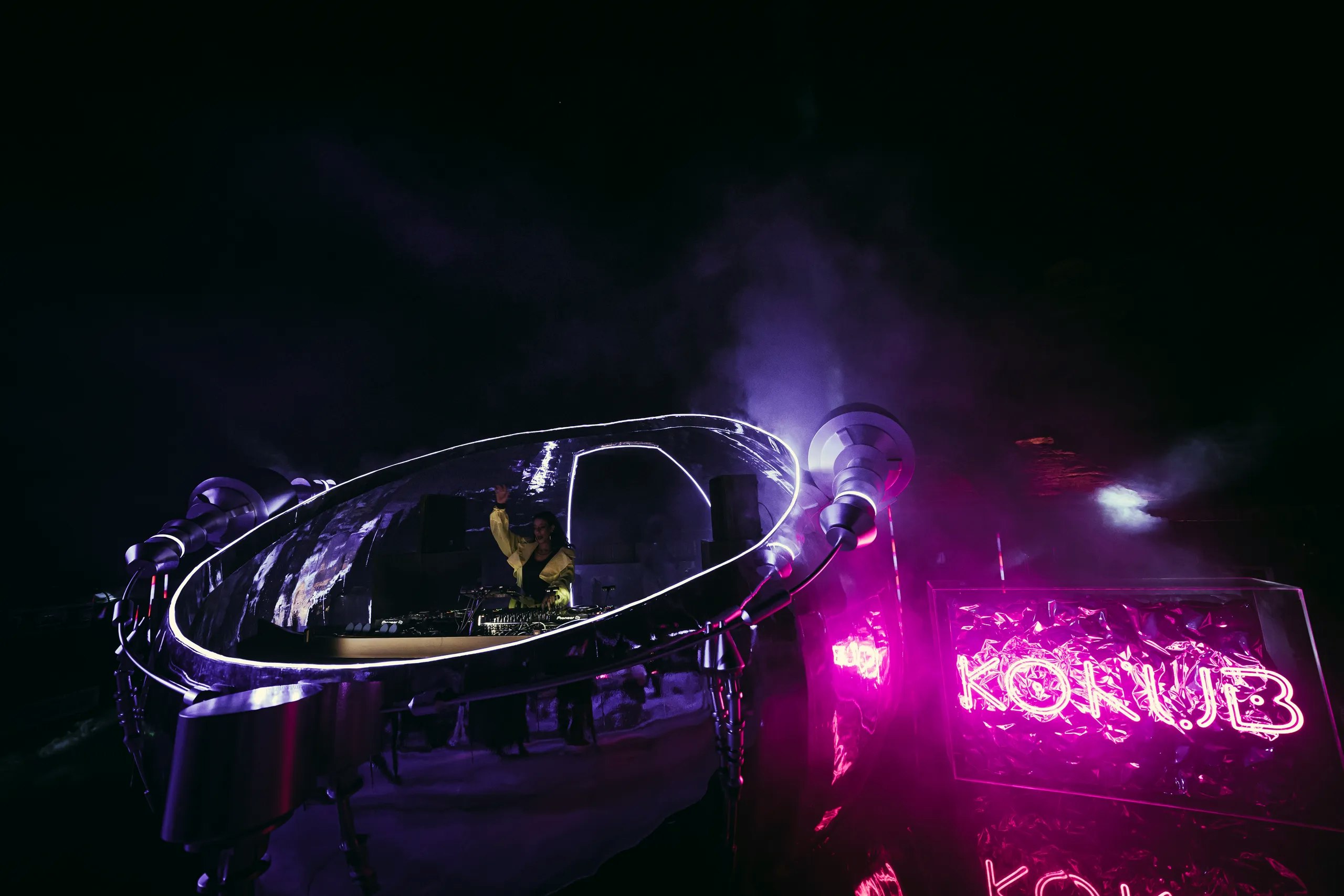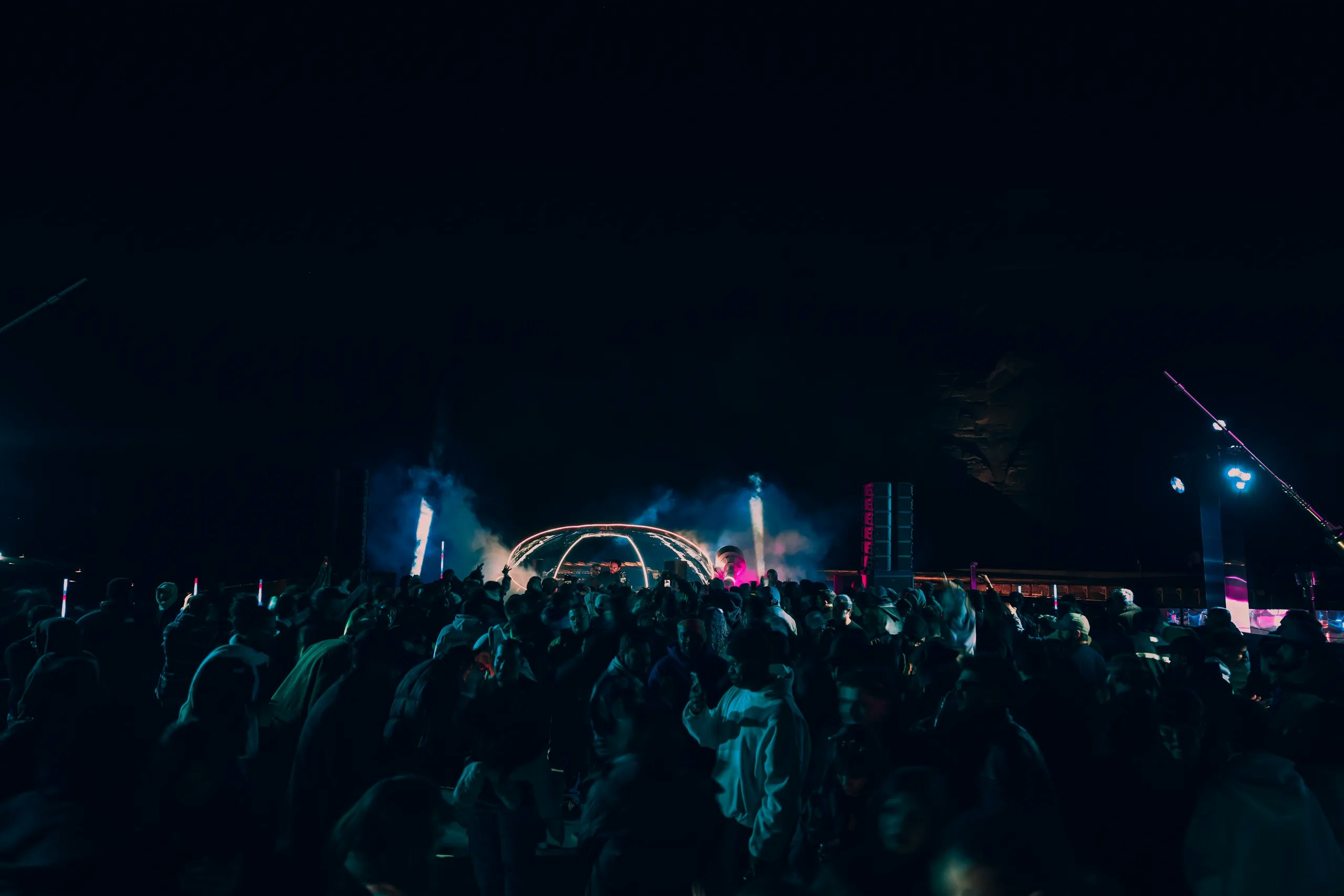

Yalla Yalla - Welcome to Saudi 34” Heralds 2034 FIFA World Cup in Saudi
By Youssef Ali
January 19 2025
Yalla Yalla - Welcome to Saudi 34” Heralds 2034 FIFA World Cup in Saudi
By Youssef Ali
January 19 2025
On the evening of 11 December, FIFA President Gianni Infantino announced Saudi Arabia's successful bid to host the 2034 World Cup. A few hours later, the stage of the Billboard Arabia Music Awards at Riyadh's King Fahad Cultural Centre hosted a special performance. Ayed, Fahad bin Fasla, and Ghada Sheri debuted the official soundtrack for the global tournament, titled “Yalla Yalla - Welcome to Saudi 34.” The performance highlighted the vital role of music in promoting sports and football events, particularly the FIFA World Cup.
When Argentina clinched the 1986 FIFA World Cup title in Mexico led by Diego Armando Maradona, the tournament’s popularity among global audiences took a hit due to widespread controversy on the championship's course and contentious decisions. Seeking new promotional paths to win back audiences became a must. Enter: official promotional anthems. The following edition of the championship, held in Italy in 1990, saw the release of not only an official promotional anthem but also an accompanying music album, which gave us Giorgio Moroder’s “To Be Number One”.
For the following 1994 World Cup held in the United States, “Gloryland” by Daryl Hall and Sounds of Blackness was released as the official anthem. Once again music was used to express the cultural identity of the host country. In 1998, things took a whole new turn when Ricky Martin released “The Cup of Life (La Copa de la Vida)” for that year's tournament. Martin's global popularity and reach, coupled with the momentum of that tournament, helped turn the song into an iconic work of music that redefined how World Cup promotional anthems were made.
The track raised the bar for the names selected to participate in official championship songs, and paved the way for sponsor companies to contribute to the production process. Soon enough, global stars became the face of World Cup promotional music. Shakira dominated the two following versions, along with Pitbull and Akon. Notable names from the Arab World also began making their mark on the promotional anthem scene, starting with Nancy Ajram's Arabic version of “Wavin' Flag”, which was followed by contributions by Cheb Khaled, Mohammed Assaf, and others. When the tournament came to Qatar in 2022, the promotional anthem took the form of an all-female collaboration with Nora Fatehi, Balqees, Rahma Riad, and Manal's “Light The Sky”. Myriam Fares also made a mark with the official FIFA Fan Festival Anthem “Tukoh Taka” along with Nicki Minaj and Maluma, as did Wegz with his “Ezz Al Arab” track.
In light of the huge impact of official promotional songs, we revisit the top anthems that marked FIFA World Cup championships since 1998.
Ricky Martin – “The Cup of Life”
In 1998, Ricky Martin released “The Cup of Life” as the official anthem for that year's World Cup edition in France. This song laid the groundwork for World Cup promotional songs, from its earworm chorus of "Ale, ale, ale!" to the use of wind instruments like trumpets with drums. The song's title also enshrined the World Cup as the most important achievement for any player, as did its zealous lyrics about the strong desire to win the tournament.
Shakira – “Hips Don't Lie (Bamboo Mix)”
Though Shakira's “Hips Don't Lie” came out before the 2006 World Cup in Germany, it was included in the championship's official music album and performed by Shakira at the closing ceremony, at a time when Latin pop music was rising in popularity across the globe. The World Cup's version of the song featured a few additions, such as a group chorus and the sounds of crowd chants. Trumpet sounds were also intensified, along with the use of Latin percussion instruments such as the bongo, conga, and timbales.
Lyrically, the verse "Don't Fight Tonight" was hailed as a call for peace as the whole world gathered around the most important football event. The lyrics also served as an audiovisual celebration of the world's favorite sport, alluding to dancing and skillful dribbling techniques by players, while the lyric "My Football Jersey says Maradona" served as an ode to the Argentine football legend.
Shakira – “Waka Waka”
Following the resounding success of “Hips Don't Lie (Bamboo Mix),” Shakira was crowned the queen of World Cup music. In the next iteration of the championship in South Africa in 2010, which was accompanied by grand celebrations as the first World Cup to be hosted in Africa, Shakira presented “Waka Waka”, which samples the Cameroonian makossa song "Zamina mina (Zangaléwa)" by Golden Sounds. As the first explicit cultural fusion conveying the essence of the World Cup, the track evoked the spirit of South Africa in the dance performances featured in the official music video.
Pitbull, Jennifer Lopez, Claudia Leitte – “We Are One”
Latin pop returned to steal the spotlight in Brazil's 2014 World Cup with “We Are One”, which brought together three music stars. The song had powerful promotional potential, with Pitbull at the peak of his stardom, Jennifer Lopez being one of the top Latin international artists, and Claudia Leitte establishing herself as a local musical icon. The track drew inspiration from Latin electronic dance music, adding a modern touch to that year's World Cup anthem.
Ozuna, Gims, RedOne – “Arhbo” & Wegz – “Ezz Al Arab”
For the Qatar 2022 FIFA World Cup, Ozuna, Gims, and RedOne released “Arhbo”, a lively anthem in Arabic, English, and French that used drum beats inspired by Khaleeji music and sampled electronic music. For its part, Wegz's “Ezz Al Arab” combined the rhythms of Afrobeat with the distinctive Khaleeji sounds of the mizmar. With his reputable eloquence, Wegz's bars proudly celebrated Qatar's successful organization of the 2022 World Cup.
Share this


